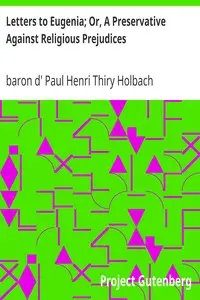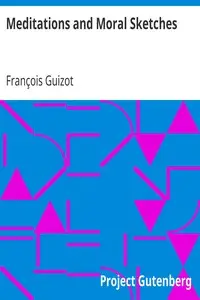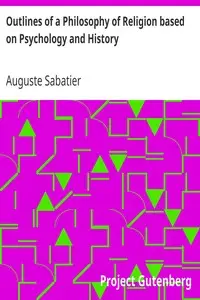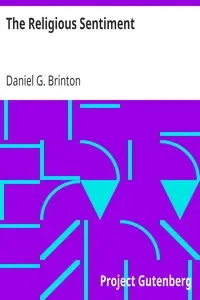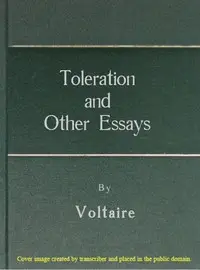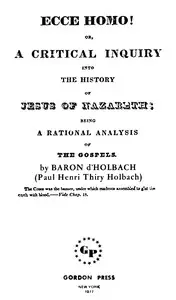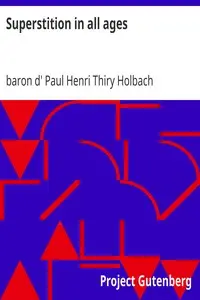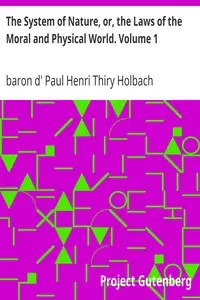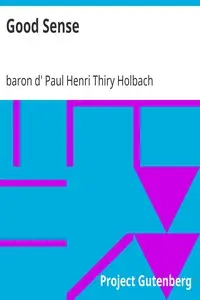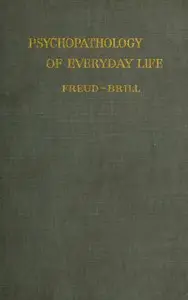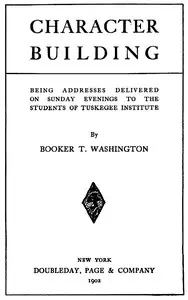"Letters to Eugenia; Or, A Preservative Against Religious Prejudices" by Paul Henri Thiry Holbach is a series of letters aimed at freeing a woman from restrictive religious beliefs through reason and philosophical thought. The story unfolds as Eugenia reveals her anguish caused by religious anxieties disrupting her privileged life. The author responds to Eugenia, guiding her away from superstition and toward enlightenment by highlighting the risks of religious prejudice. He blames her unease on the detrimental impacts of false beliefs taught to her and encourages her to trust her own reasoning, showcasing the text's main goal: to champion a morality founded on human experience instead of established religious norms.
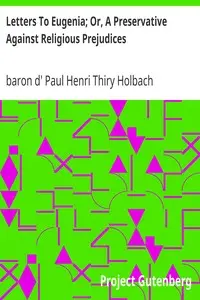
Letters To Eugenia; Or, A Preservative Against Religious Prejudices
By Paul Henri Thiry Holbach
A distressed woman finds solace in philosophical guidance as she is led away from the imprisonment of religious fear towards the freedom of reason.
Summary
About the AuthorPaul-Henri Thiry, Baron d'Holbach, known as d'Holbach, was a Franco-German philosopher, encyclopedist and writer, who was a prominent figure in the French Enlightenment. He was born Paul Heinrich Dietrich in Edesheim, near Landau in the Rhenish Palatinate, but lived and worked mainly in Paris, where he kept a salon. He helped in the dissemination of "Protestant and especially German thought", particularly in the field of the sciences, but was best known for his atheism, and for his voluminous writings against religion, the most famous of them being The System of Nature (1770) and The Universal Morality (1776).
Paul-Henri Thiry, Baron d'Holbach, known as d'Holbach, was a Franco-German philosopher, encyclopedist and writer, who was a prominent figure in the French Enlightenment. He was born Paul Heinrich Dietrich in Edesheim, near Landau in the Rhenish Palatinate, but lived and worked mainly in Paris, where he kept a salon. He helped in the dissemination of "Protestant and especially German thought", particularly in the field of the sciences, but was best known for his atheism, and for his voluminous writings against religion, the most famous of them being The System of Nature (1770) and The Universal Morality (1776).


